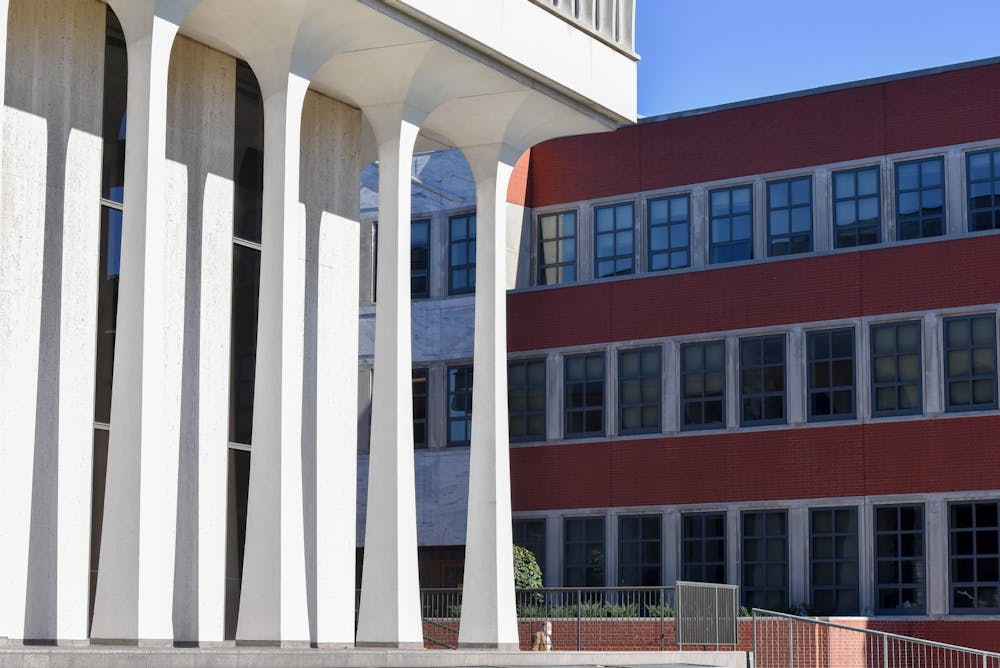On May 30, Larry Giberson ’23 graduated from Princeton with a degree in Politics. His graduation deserves attention because he participated in the January 6th riots at the Capitol. He has identified himself in photos at the riot and recently pleaded guilty to a felony charge of interfering with police during a civil disorder. So why did Princeton grant him a degree?
In addition to his Politics degree, there is an almost comic irony to Giberson’s receipt of a certificate in Values and Public Life. After all, he posed a significant threat to public life when he was part of a mob that stormed the Capitol and exhibited perverse values when he cheered at attacks on Capitol police officers. Giberson’s behavior clearly implies that he believes in lies and is willing to violently act on them, violating Princeton’s code of conduct and demonstrating that he does not understand Princeton’s emphasis on principled civic engagement. Because of this, the University should not have awarded Giberson a diploma.
Can a student whose behavior indicates a fundamental misunderstanding of political truth and lies have adequately mastered the content taught by Princeton’s Politics department? A student need not conform to a particular ideology to be worthy of a degree. But adherence to blatantly untrue ideas is an intellectual failure. Giberson’s attempt to break into the Capitol represents an endorsement of debunked claims; the Capitol rioters intended to impede the certification of electoral votes for President Biden because of the unequivocally false contention that Biden lost the 2020 election. Having far-right political beliefs does not make one unfit for a Princeton diploma. Yet by denying objective facts through his participation in a riot that revolved around an insidious conspiracy theory, Giberson fell short of Princeton’s academic standards.
Giberson’s participation in the Capitol riots doesn’t just represent an intellectual failure, but a moral one as well. He tried to sabotage the nation Princeton asks students to serve. He was part of a mob that assaulted police officers. He directly repudiated the University’s motto “in the nation’s service and the service of humanity” by attacking individuals whose actual job is to serve the nation. Acting in accordance with the school’s unofficial motto and mission, at least while enrolled as a student, should be a prerequisite for receiving a Princeton diploma.
Because the University prioritizes civic responsibility and ethical leadership, it should maintain high expectations for student conduct. By denying Giberson’s diploma, Princeton could establish a precedent of strict intolerance for destructive, illegal behavior on and off campus. In fact, this precedent already exists — at least theoretically. According to Princeton’s Rights, Rules, Responsibilities policy manual, “deliberate participation in a riot” qualifies as an “extremely serious offense,” and “violations of local, state, or federal laws … may trigger disciplinary action regardless of where such violations occur.”
Giberson has admitted that he deliberately participated in what the rest of us should fairly characterize as riot and pled guilty to a violation of federal law. He clearly qualifies for disciplinary action per the above stipulations.
Withholding a diploma would not be unprecedented. In the past year, the University withheld the degrees of four students found responsible for fraternity hazing. While those students will receive their diplomas within two years, their punishment reveals that Princeton is not afraid to take bold action when students infringe the University’s code of conduct — except in this case. The University might have been reluctant to punish Giberson because his behavior could be construed as a manifestation of free speech, and Princeton is admirably dedicated to that value. But there is a difference between peacefully advocating unorthodox views and engaging in political violence. Princeton should encourage the former, but it can’t defend the latter.
Like anyone else, Giberson has potential to learn and grow and achieve moral redemption. He may one day become a person who satisfies Princeton’s intellectual and ethical standards. But just as Princeton can’t punish alumni who contradict the University’s mission later in life, it should not retroactively award diplomas to individuals who demonstrate their worthiness long after their time on campus is up. Princeton can’t confirm if alumni retain what they learn after they graduate, but it can reward current students who honor their educational commitments and discipline those who don’t. Giberson attempted to overthrow the American government while a Princeton student; his actions defied the University’s academic and moral expectations of students. This makes him undeserving of a Princeton diploma. As a university that values democracy, justice, scholarship, and service, Princeton should not be in the business of granting degrees to insurrectionists.

Frances Brogan is an incoming first-year from Lancaster, Pa., intending to major in the School of Public and International Affairs. She can be reached at frances.brogan@princeton.edu.









